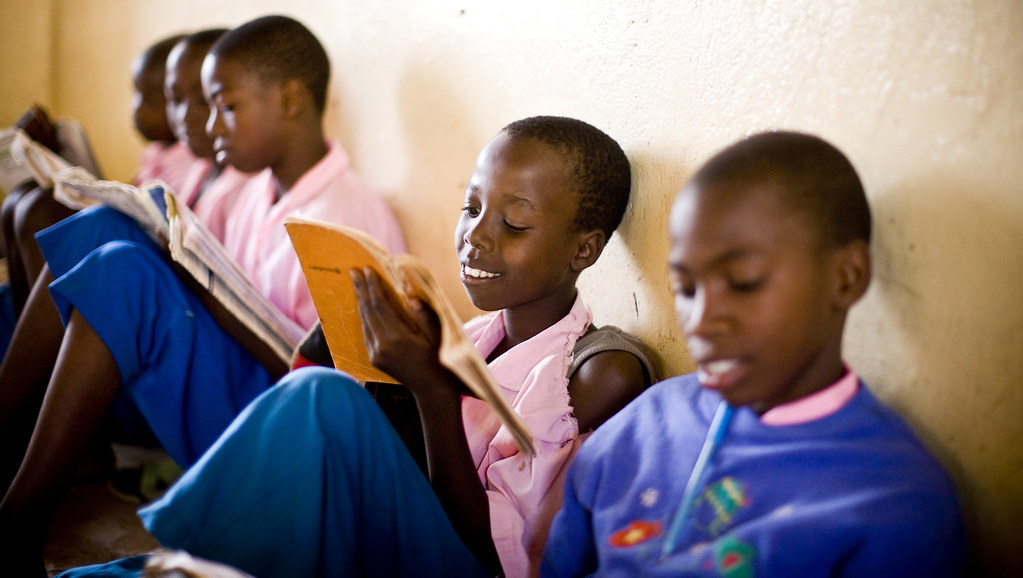Significant new funding from the Economic and Social Research Council (ESRC) will help researchers unpick why learning in English might be holding back girls education across sub-Saharan Africa.
The study, to be led by Dr Lizzi O. Milligan from the Department of Education, will assess ways that learning in English influences Rwandan girls' educational experiences and outcomes in upper primary and lower secondary education.
Sustainble Development Goals
It is set against a backdrop of UN Sustainable Development Goal 4 which calls on all governments to ensure that, by 2030, all children complete a basic education that is inclusive, equitable and of high quality.
While much research has explored the ways that gender and the language-of-instruction separately present a challenge to the achievement of Sustainable Development Goal 4, there is less knowledge and awareness of how learning in English might pose particular challenges.
The three-year study will focus on the attainment gap through a mixed-methods case study of girls in Rwanda aged 9 – 15 where the language-of-instruction is English.
Rwanda has been chosen as the case study as it is a country where gender parity has been achieved, if measured solely on access across the education cycle. But girls are disadvantaged when it comes to measures of equity - with significantly higher numbers of girls repeating years - and quality – with fewer girls passing national secondary examinations.
Potential for impact across the Global South
English is the language-of-instruction from the fourth year of primary school and recent research has suggested that it is a significant barrier to learner participation and success in national examinations. As such it provides a useful backdrop to explore the potential ways that learning in English may be impacting on Rwandan girls' educational access, experiences and outcomes. The intention is that the findings will be applicable not just to policy-makers in Rwanda, but to neighbouring countries in sub-Saharan Africa and more broadly across the Global South.
Dr Lizzi O. Milligan explained: “So little is known about girls’ education in English Medium education. In the context of the UN’s Sustainable Development Goals this intractable issue is one policy-makers need to re-evaluate. My hope is that this project can shine a light on girls’ everyday experiences of learning in English. The team is particularly looking forward to co-researching with girls and advocating further for gender justice.”
Dr Alphonse Uworwabayeho who will be involved in this work at the University of Rwanda added: “This research will be of relevance to a range of stakeholders. Policy makers will benefit from a better understanding of the impact of English medium instruction on learning in Rwandan schools. This will be of relevance to members of the Rwanda Education Board who are responsible for primary and secondary school curricula and textbook procurement.
“My hope is that this will also be of interest to teacher educators in Rwanda and more widely in Africa. Our aim is to identify best practices that can be used to improve the comprehension of learners and their engagement with the curriculum. As part of this we will also raise awareness among university lecturers of how they can work with educators to develop evidence of successful practice and how this can be scaled up through inclusion in initial and continuing teacher education.”
The researchers will also be collaborating with Dr Harry Kuchah at the University of Leeds.
Factoring in childcare
Lizzi’s grant was innovative in acknowledging caring responsibilities, including limiting the time she will personally spend in Rwanda, in the grant proposal.
She explained: “I am particularly proud of the fact that caring responsibilities were made explicit in the grant as I know I’m not alone in worrying about ways to balance being a mum with my capability to undertaken significant international research.”
Her proposal was supported by Sarah Jones from Research and Innovation Services.
Dr Andrea Abbas, Head of our Department of Education, added: “This is an exciting international project with real potential for impact on the challenging issue of improving educational outcomes for girls in Rwanda. We are very proud of Lizzi for securing this new funding, and will follow with interest her project and how it develops.”

